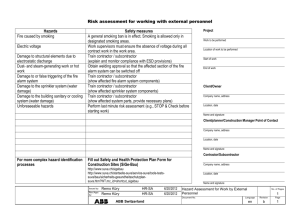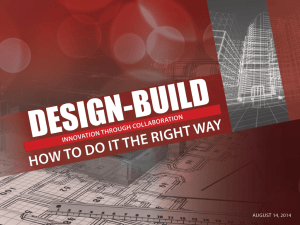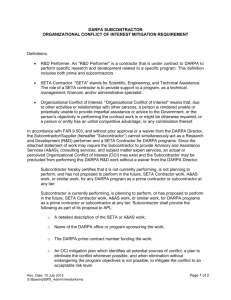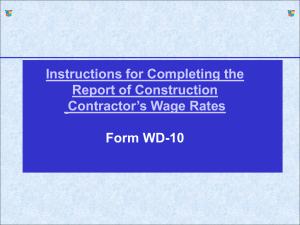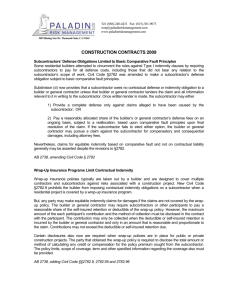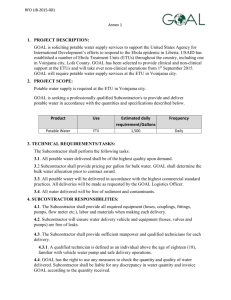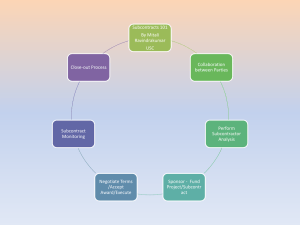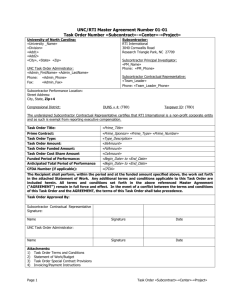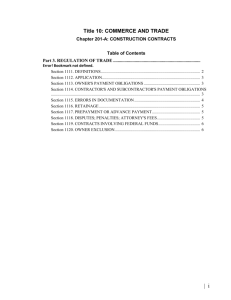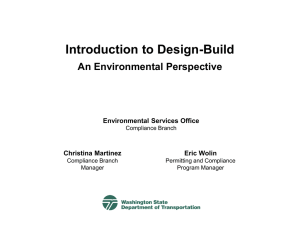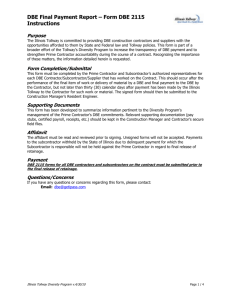What Small and Emerging Contractors Need to
advertisement
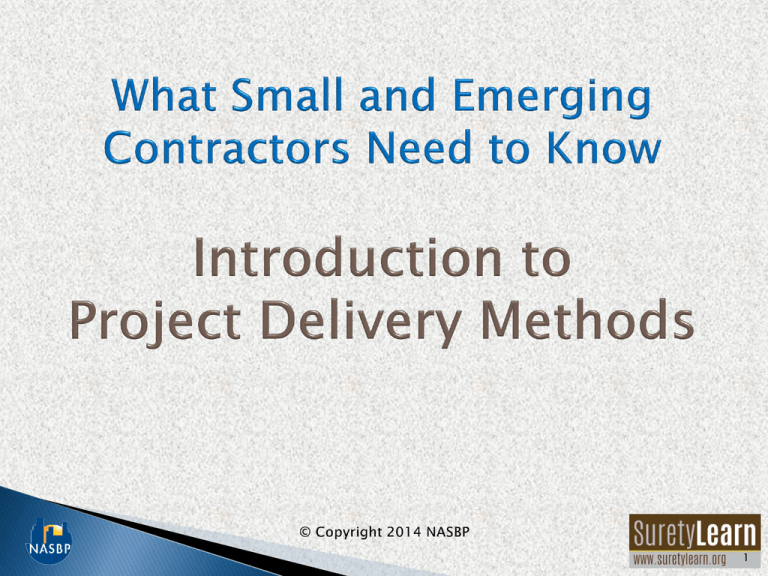
1 • • • • A project delivery method describes the process of how a project will be designed and constructed. A project delivery method can be characterized in various ways, one of which is the contractual arrangement(s) of the main project participants. This presentation focuses on an overview of the four common project delivery methods, with typical characteristics of each one. The contractual arrangement for each delivery method will be illustrated. 2 • • • • • • • Design-Bid-Build (DBB) Design-Build (D-B) Construction Management at-Risk (CMAR) Integrated Project Delivery (IPD) While these four are the most common, there are other project delivery methods and hybrids of these delivery methods, with characteristics of more than one method. There is no one “best” delivery method; there are advantages and disadvantages in using each method. Experience and expertise allows selection of the right delivery method for a particular project. 3 • • • Design-bid-build, known as the traditional method, is a project delivery method in which the owner contracts with separate entities for the design and the construction of a project. Two contracts are used to accomplish design and construction: the owner-designer contract and the owner-contractor contract. There are three sequential project phases to the design-bid-build method: – Design phase – Bidding phase – Construction phase 4 • • • • • The owner hires a design professional to prepare the design and contract documents (plans and specifications). Then these documents are used for competitive bidding or negotiation with contractors. The owner executes a contract with the winning contractor, who is in charge of delivery of the completed contract. The contractor may subcontract some of the work to subcontractors. The contractor is responsible for the execution of the work under the contract. 5 Owner Designer Contractor Subcontractor Subcontractor Subcontractor 6 • • • Design-build (D-B) is a project delivery method in which the agency or owner contracts with a single entity, known as the design-build entity, to complete both the design and construction services. A single contract, between the owner and the design-build entity, is used to accomplish design and construction. Design-build relies on a single point of responsibility and is used to minimize risks for the project owner and to reduce the delivery schedule by overlapping the design phase and the construction phase of a project. 7 • • • The firm will often be a design-build firm or a joint venture of a design firm and a construction firm for a specific project. The design–build firm hires the subcontractors. The D-B method enables fast-track delivery, in which construction can begin before design is completed. 8 Owner Design-Build Entity Subcontractor Subcontractor Subcontractor 9 • • • • Construction management at-risk (CMAR) is a project delivery method in which the construction manager (CM at-Risk) agrees to deliver the project within a defined schedule and price, either fixed or a guaranteed maximum price (GMP). The CM at-Risk acts as consultant to the owner in the development and design phases and as a general contractor during the construction phase. The CM at-Risk assumes all liability as the contractor. In addition to acting in the owner’s interest, the CM at-Risk must manage and control construction costs to not exceed the GMP, which would be financially detrimental to the CMAR company. 10 • • • • The construction management at-risk method should be differentiated from the construction management-agency (CMa) method of project delivery. CMAR and CMa are often confused, but they are distinct delivery methods. CMa is characterized by a construction manager who is a true agent of the owner and acts on the owner’s behalf in the administration of the project. The construction manager-agent has no responsibility for the construction outcome of the project, as does the CM at-Risk. 11 Designer Owner Construction Manager at Risk Subcontractor Subcontractor Subcontractor 12 • • • • • • Integrated project delivery (IPD) is a project delivery method that fully integrates the project participants into a collaborative process that takes advantage of the knowledge and skills of all the participants to maximize the project results. A multi-party contract is signed by, at a minimum, the owner, the design professional, and the contractor. The key participants are involved from an early stage of design, with collaborative decision-making, to facilitate communication and increase profits. The project is jointly managed by the project team. IPD involves an alignment of interests of all the principle parties; risks and rewards are shared based on the project outcome. This delivery method is less common than the others and is most often used by experienced and sophisticated parties in the design and construction processes. 13 Owner Designer Contractor Consultants 14 15
